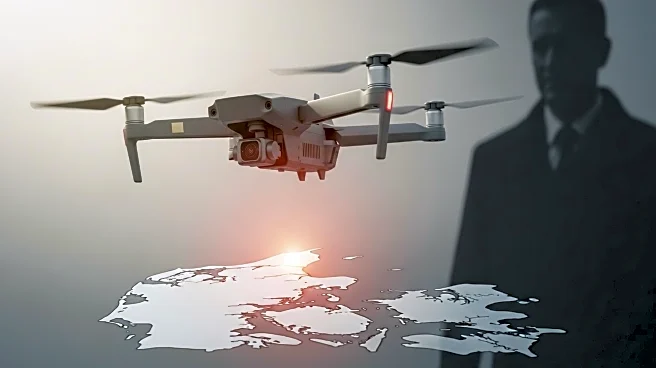What's Happening?
Denmark has reported new drone sightings over defense sites, including Skrydstrup Air Base and the Jutland Dragoon Regiment. The Danish Prime Minister, Mette Frederiksen, described the situation as a 'hybrid war,' attributing the drone activities to a 'professional actor.' The incidents have led to temporary shutdowns of major airports and heightened security measures. In response, Denmark has accepted Sweden's offer to provide military anti-drone capabilities ahead of an EU leaders' meeting in Copenhagen. The situation has also seen similar drone activities reported in Germany, near the Danish border, suspected to be espionage-related.
Why It's Important?
The drone incidents in Denmark highlight the growing threat of unmanned aerial vehicles in national security contexts. The Prime Minister's characterization of the situation as a 'hybrid war' underscores the seriousness of the threat, which could have implications for European security policies. The involvement of a 'professional actor' suggests a level of sophistication that could challenge existing defense mechanisms. The acceptance of Swedish military support indicates a need for international cooperation in addressing these threats. The incidents may prompt other European nations to reassess their own drone defense strategies and collaborate on regional security measures.
What's Next?
Denmark is likely to continue strengthening its drone defense capabilities, potentially through legislative changes and increased international collaboration. The upcoming EU leaders' meeting in Copenhagen may serve as a platform for discussing broader security strategies and enhancing collective defense measures against drone threats. The situation may also lead to increased surveillance and monitoring of airspace across Europe, as countries seek to prevent similar incidents. Ongoing investigations will be crucial in identifying the responsible parties and developing effective countermeasures.










